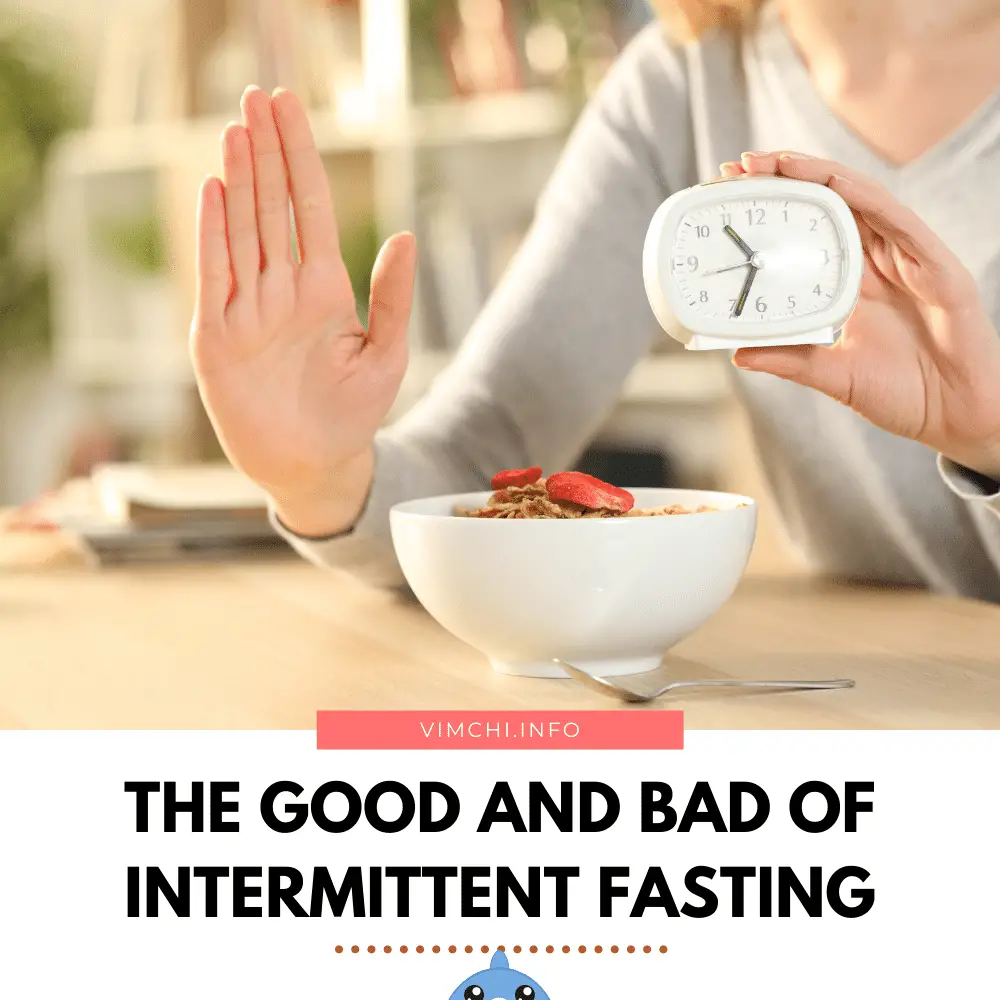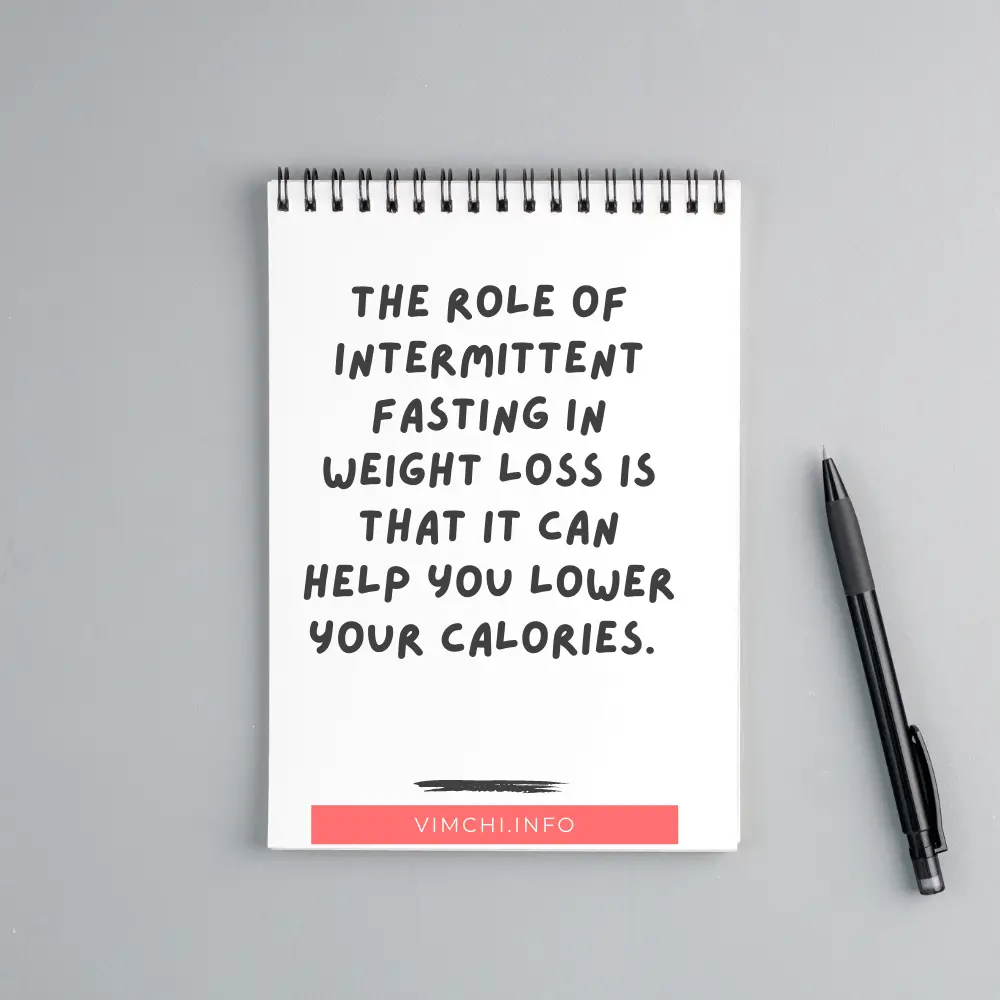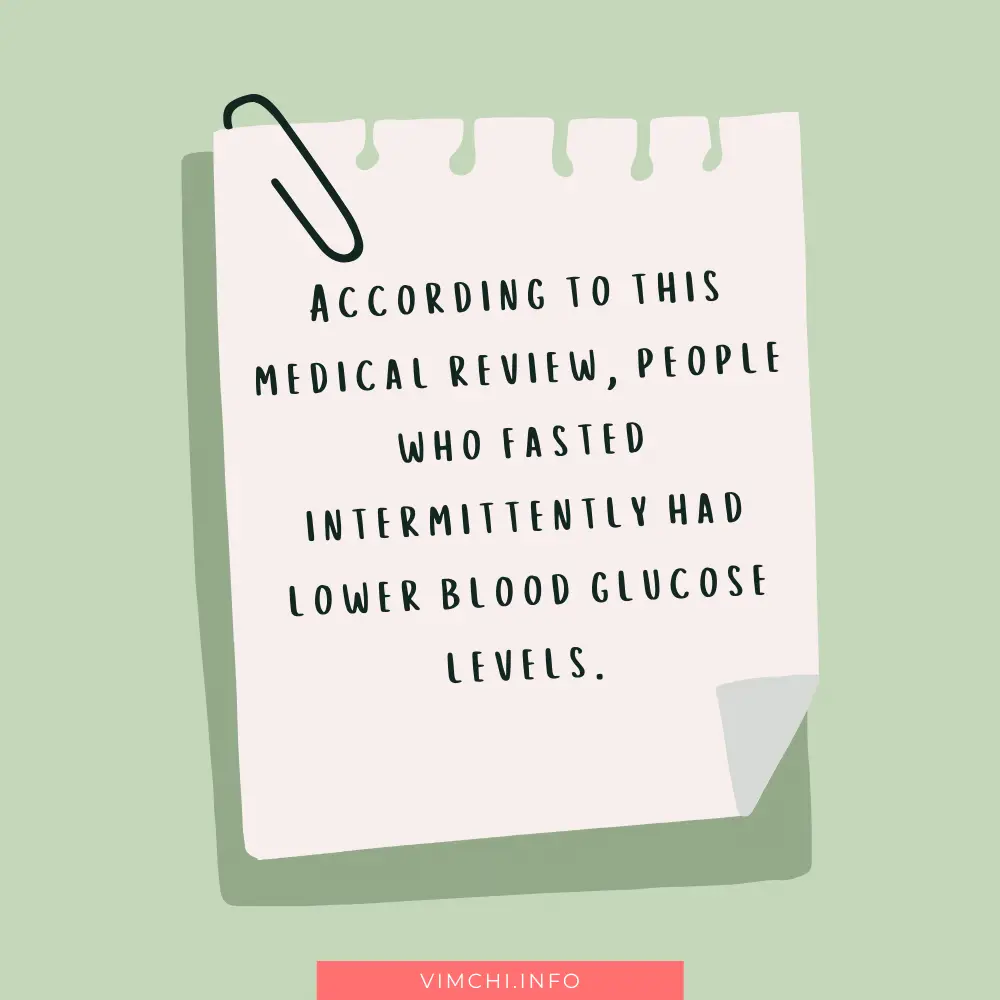Intermittent fasting is a popular health trend. It aims to help you lose weight. But just like any weight-loss method, IF has many pros and cons. Understanding them will help you decide whether or not intermittent fasting is the right way for you to improve your health.

If you’re not initiated yet with intermittent fasting, let’s do a brief discussion of it.
Intermittent Fasting — What Is It?
It’s time-restricted eating. In a day, you have a period of fasting and a period of eating. There are different styles of IF.
With that in mind, it makes it easier to adapt to your current lifestyle.
Read: Will Intermittent Fasting Give You Abs?
To some extent, you may be fasting intermittently and you haven’t realized it. For instance, after dinner, you don’t eat until you have your first meal the following day. It’s still considered intermittent fasting.
However, that sort of IF is a short version. The most popular IF methods involve faster fasting periods. They are said to be more effective if your goal is to lose weight.
16:8
In this method, you fast for 16 hours. For instance, your eating period can start at 12 pm and it will end at 6 pm. That’s your last meal. You won’t eat anything else until 10 am the following day.
OMAD
It requires you to eat one meal a day or fast for 23 hours and have an eating period of 1 hour. This one is an extreme version of 16:8. You should only follow it if you have already tried the shorter fast.
If you want to know more about OMAD or with to try it, make sure to read this first.
24-Hour Fast
This is more extreme than OMAD. It’s also known as alternate day fasting. With this form of IF, you won’t eat the entire day.
But you can consume water. Some advocates may recommend drinking unsweetened tea or coffee.
You can do a 24-hour fast one to two times a week. It’s not ideal to try the 24-hour fast without first trying the shorter versions, like 16:8 or 12:12.
But why should you fast intermittently? What are the pros of intermittent fasting?
Pros of Intermittent Fasting
Helps in Weight Loss

When it comes to weight loss, the number of calories you take and the number of calories you burn must take precedence.
The role of intermittent fasting in weight loss is that it can help you lower your calories.
A caloric deficit is vital if you wish to lose weight. Because you can’t eat at any time of the day with IF, you may lower your calorie intake, leading to weight loss.
However, just because you’re fasting intermittently, it doesn’t mean that you are in a calorie deficit. Keep in mind that you can still eat more than what your body can burn even if you follow IF.
For that reason, I strongly recommend using a calorie counter. If you’re not mindful of your calorie intake, you may still not be consuming fewer calories to lose weight.
Improves Insulin Resistance

Intermittent fasting isn’t only useful if you wish to lose weight. But it’s also beneficial if you wish to improve your insulin sensitivity.
What IF can do in this situation is that it lowers your leptin levels, which is a hormone that regulates hunger.
According to this medical review, people who fasted intermittently had lower blood glucose levels.
It can be the result of body weight and body fat reductions. The review showed an overall benefit on blood sugar levels when fasting intermittently.
Lowers Blood Cholesterol
This is one of the intermittent fasting pros that can be appealing to you if you’ve been trying to regulate your blood cholesterol. However, you can only achieve it if you consume a healthy diet when you’re not fasting.
This review shows that intermittent fasting could improve lipid profiles. However, researchers recommend evaluating the effects of IF in patients suffering from dyslipidemia.
Improves Heart Health
IF may also be beneficial to your heart, as long as you consume healthy foods. Reducing your calories can reduce your resting heart rate and improve blood flow.
In these human trials, they showed that IF could improve risk factors associated with a higher risk of heart disease, like lowering blood pressure, regulating blood glucose levels, and decreasing C-reactive proteins and cytokines.
After reviewing these pros of intermittent fasting, let’s talk about the bad of IF.
Cons of Intermittent Fasting
Difficult to Follow Long-Term
Just like any other diet in this world, intermittent fasting has its own cons. One of them is that it’s difficult to follow long-term.
It’s one reason you need to be fully committed and dedicated when you want to follow IF.
Intermittent fasting requires you don’t eat anything at all at a designated period of time. A prolonged period of no-calorie consumption can be bad for some people because it can lower their energy while increasing their cravings.
If you don’t build the right self-control, you can’t stick to this diet long-term. That’s why you have to develop self-control, dedication, and commitment before you try intermittent fasting.
Then again, it’s okay to fall once or twice. Don’t make it too difficult for you to follow it.
Social Life is Affected

Most social interactions happen when there are food and drinks. When you follow IF, you need to have the self-control to not indulge or figure out a way to have a social life without having to break your fast.
For instance, if you’re planning to have a dinner date with your friends at 6 pm, you can either prolong your fast or shorten it.
Gain Weight
Yes, you can gain weight with intermittent fasting. But it only happens if you’re not mindful of your calorie intake.
It’s easy to overeat and overconsume calories. You may think that because you’re fasting intermittently, you can eat anything.
But weight loss doesn’t work that way.
You need a calorie deficit if you wish to lose weight. Even if you fast for 20 hours but you eat more than your recommended calorie intake, you still won’t lose weight.
Conclusion
I hope that these intermittent fasting pros and cons will open your mind about what to expect when you follow this method of losing weight. Now that you know its benefits and risks, it’s up to you to decide whether to follow it or not.
If you really want to lose weight, you might want to try what Josh Peck did to help him lose weight.

Speak Now ... Or Forever Hold Your Peace